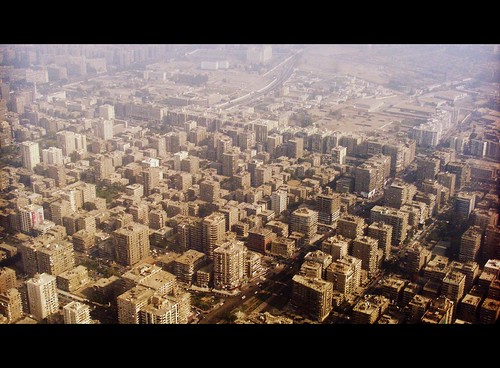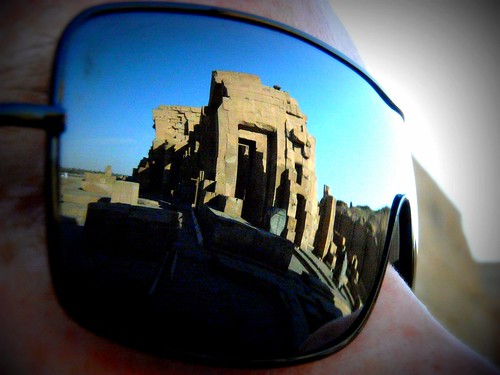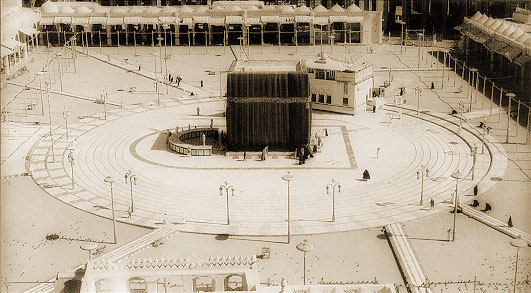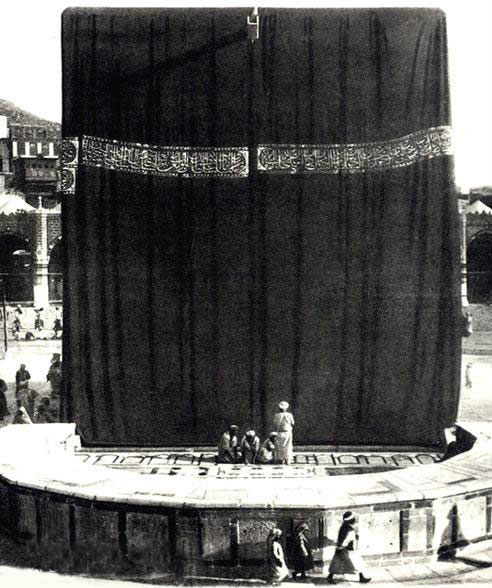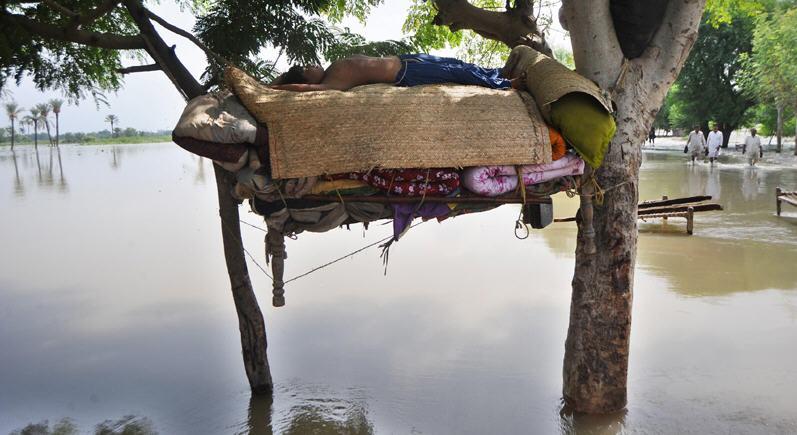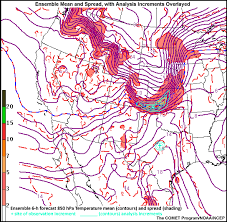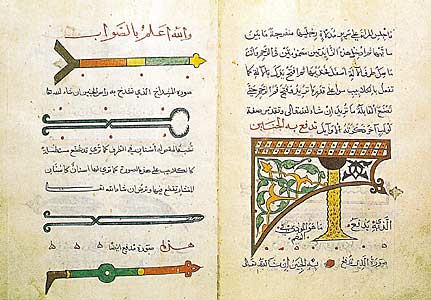Salam alaik,
no place to take a nap.. :/
Just encountered this on my surf-slide;
Viewpoint Column..
Calamity clears out the reality of a man, just like rage reflects the inner self.
The irony seeps in, when after every any calamity a group of people - who (rest assured) ain't even remotely affected by that calamity themselves, leading an absolutely
'eat drink n be merry' lifestyle - start crowing out together, categorizing any said calamity as a test only & mocking at the other set of people doing istighfaar. Sometimes even ending up (out of sheer ignorance or arrogance - whichever that is) jesting & jeering the obligation & Beloved's Sunnah of repentance itself.
No body gives (or should give) a dead dime or a bunny's bum on what such intellectually-dishonest among us have got to say out of their skewed sense of Ahkaam of Islam, but when it comes down to open mockery of Quran & Sunnah...then may Allah guide them or wipe them (out)
Without delving into much of that hoopla; a trash tarnishing our national demeanour, i'd jot down few bullet-points here to clear out once n for all;
- Allaah says (interpretation of the meanings):
“Whatever of good reaches you, is from Allaah, but whatever of evil befalls you, is from yourself”
[al-Nisaa’ 4:79]
- Allaah says (interpretation of the meanings):
“And whatever of misfortune befalls you, it is because of what your hands have earned. And He pardons much”
[al-Shoora 42:30]
- Allah says, translation of which is;
“And We sent not the signs except to warn”
[al-Israa’ 17:59]
- And Allaah says (interpretation of the meaning):
“Did the people of the towns then feel secure against the coming of Our punishment by night while they were asleep? Or, did the people of the towns then feel secure against the coming of Our punishment in the forenoon while they were playing? Did they then feel secure against the Plan of Allaah? None feels secure from the Plan of Allaah except the people who are the losers.”
[al-A’raaf 7:97-99]
- Allaah says (interpretation of meaning):
“Verily, We sent (Messengers) to many nations before you (O Muhammad صلى الله عليه وسلم). And We seized them with extreme poverty (or loss in wealth) and loss in health (with calamities) so that they might humble themselves (believe with humility).
When Our Torment reached them, why then did they not humble themselves (believe with humility)? But their hearts became hardened, and Shaytaan (Satan) made fair‑seeming to them that which they used to do.
So, when they forgot (the warning) with which they had been reminded, We opened for them the gates of every (pleasant) thing, until in the midst of their enjoyment in that which they were given, all of a sudden, We took them (in punishment), and lo! They were plunged into destruction with deep regrets and sorrows”
[al-An’aam 6:42-44]
- Allah says, translation of which is;
“Say: ‘He has power to send torment on you from above or from under your feet, or to cover you with confusion in party strife, and make you to taste the violence of one another.’”
[al-An’aam 6:65]
- Allah says, translation of which is;
“Evil (sins and disobedience to Allaah) has appeared on land and sea because of what the hands of men have earned (by oppression and evil deeds), that He (Allaah) may make them taste a part of that which they have done, in order that they may return (by repenting to Allaah, and begging His Pardon)”
[al-Room 30:41]
- Allah says, translation of which is;
“We will show them Our Signs in the universe, and in their own selves, until it becomes manifest to them that this (the Qur’aan) is the truth. Is it not sufficient in regard to your Lord that He is a Witness over all things?”
[Fussilat 41:53]
- And Allaah said concerning the nations of the past, translation of which is:
“So We punished each (of them) for his sins, of them were some on whom We sent Haasib (a violent wind with shower of stones) [as on the people of Loot (Lot)], and of them were some who were overtaken by As-Saihah [torment — awful cry, (as Thamood or Shu‘ayb’s people)], and of them were some whom We caused the earth to swallow [as Qaaroon (Korah)], and of them were some whom We drowned [as the people of Nooh (Noah), or Fir‘aun (Pharaoh) and his people]. It was not Allaah Who wronged them, but they wronged themselves.”
[al-‘Ankaboot 29:40]
- Al-Bukhaari narrated in his Saheeh from Jaabir ibn ‘Abd-Allaah (may Allaah be pleased with him) that when the aayah (interpretation of the meaning) “Say: ‘He has power to send torment on you from above” was revealed, the Prophet (peace and blessings of Allaah be upon him) said, “A’oodhu bi wajhika (I seek refuge in Your Face”; “or from under your feet”, he said, “A’oodhu bi wajhika (I seek refuge in Your Face).” (Saheeh al-Bukhaari, 5/193).
(Abu’l-Shaykh al-Isbahaani narrated from Mujaahid concerning the Tafseer of this aayah, “Say: ‘He has power to send torment on you from above”: (this means) al-Sayhah (the shout or tumult), stones and strong wind; “or from under your feet”, (means) earthquakes and being swallowed up by the earth.)
- The great scholar Zakariya al-Ansaari (may Allaah have mercy on him) said:
It is mustahabb for everyone to beseech Allaah in supplication and so on when earthquakes and similar events, such as thunderbolts and strong winds, happen, and to offer prayers on his own in his house lest he be negligent, because the Prophet (blessings and peace of Allaah be upon him) said, when the wind blew strongly: “O Allaah, I ask You for its good and the good of what is in it and the good of what it is sent with, and I seek refuge in You from its evil and the evil of what is in it and the evil of what it is sent with.” Narrated by Muslim.
End quote.
[Asna al-Mataalib Sharh Rawd al-Taalib (1/288). See also Tuhfat al-Muhtaaj (3/65).]
Al-‘Allaamah Ibn al-Qayyim (may Allaah have mercy on him) said: “Allaah sometimes gives the earth permission to breathe, which is when major earthquakes happen; this makes people feel scared, so they repent, give up sins, pray to Allaah and feel regret [for their sins]. When there had been an earthquake, some of the Salaf said: your Lord is warning you. When Madeenah was struck by an earthquake, ‘Umar ibn al-Khattaab (may Allaah be pleased with you) addressed the people and said: if there is another earthquake, I will not stay here with you.”
[mentioned by Ibn al-Jawzi in al-Muntazam, among the events of the year 20 AH.]
And there are many similar reportes from the Salaf.
Undoubtedly, the earthquakes & such calmaties that are happening these days are among the signs which Allaah uses to frighten His slaves. All the earthquakes and other things which happen and cause harm and injury to people are because of shirk and sins, as Allaah says (interpretation of the meanings):
“And whatever of misfortune befalls you, it is because of what your hands have earned. And He pardons much” [al-Shoora 42:30]
“Whatever of good reaches you, is from Allaah, but whatever of evil befalls you, is from yourself” [al-Nisaa’ 4:79]
Solution:
Shaykh Ibn Baaz (may Allaah have mercy on him) said:
"What must be done at the time of an earthquake or other calamity, or an eclipse, strong wind or flood is to repent to Allaah, may He be glorified, and to beseech Him and ask Him for well-being, and to remember Him a great deal and ask Him for forgiveness, as the Prophet (blessings and peace of Allaah be upon him) said at the time of an eclipse: “When you see that, then turn to remembrance of Allaah and call upon Him and ask for His forgiveness.” Agreed upon. It is also mustahabb to show compassion to the poor and needy, and to give charity to them, because the Prophet (blessings and peace of Allaah be upon him) said: “Show mercy, you will be shown mercy.” (Narrated by Ahmad) And he said: “Those who show mercy will be shown mercy by the Most Merciful. Show mercy to those who are on earth and the One Who is in heaven will show mercy to you.” Narrated by al-Tirmidhi. And he (blessings and peace of Allaah be upon him) said: “The one who does not show mercy will not be shown mercy.” Narrated by al-Bukhaari. It was related from ‘Umar ibn ‘Abd al-‘Azeez (may Allaah have mercy on him) that he used to write to his emirs when earthquakes took place telling them to give charity.
One of the means of being safe and sound from all evils is for those in authority to hasten to restrain and impose an immediate crack-down on the foolish elements in society, & compel them to behave & adhere to the truth, and to implement the laws of Allaah among them, enjoining what is good and forbidding what is evil [Amr bil Ma'roof wa nahi anil Munakr], as Allaah says interpretation of the meaning is:
“The believers, men and women, are Awliyaa’ (helpers, supporters, friends, protectors) of one another; they enjoin (on the people) Al‑Ma‘roof (i.e. Islamic Monotheism and all that Islam orders one to do), and forbid (people) from Al‑Munkar (i.e. polytheism and disbelief of all kinds, and all that Islam has forbidden); they perform As-Salaah (Iqaamat-as-Salaah), and give the Zakaah, and obey Allaah and His Messenger. Allaah will have His Mercy on them. Surely, Allaah is All-Mighty, All-Wise”
[al-Tawbah 9:71]
“Verily, Allaah will help those who help His (Cause). Truly, Allaah is All‑Strong, All‑Mighty.
Those (Muslim rulers) who, if We give them power in the land, (they) enjoin Iqamat‑as‑Salaah [i.e. to perform the five compulsory congregational Salaah (prayers) (the males in mosques)], to pay the Zakaah and they enjoin Al‑Ma‘roof (i.e. Islamic Monotheism and all that Islam orders one to do), and forbid Al‑Munkar (i.e. disbelief, polytheism and all that Islam has forbidden) [i.e. they make the Qur’aan as the law of their country in all the spheres of life]. And with Allaah rests the end of (all) matters (of creatures)”
[al-Hajj 22:40-41]
“And whosoever fears Allaah and keeps his duty to Him, He will make a way for him to get out (from every difficulty).
And He will provide him from (sources) he never could imagine. And whosoever puts his trust in Allaah, then He will suffice him. Verily, Allaah will accomplish his purpose. Indeed Allaah has set a measure for all things”
[al-Talaaq 65:2-3]
And there are many verses with similar meanings."
End quote.
[Majmoo’ Fataawa Ibn Baaz (9/150-152).]
Earthquakes (or floods) are one of the great signs of Allaah in this universe, with which He tests His slaves as a reminder or to instil fear of Him or as a punishment. Man must remember, when the signs occur, his weakness, incapability, humble status before Allaah and his need of Him, so he turns to Allaah, may He be exalted and glorified, in supplication, beseeching and humility, in the hope that Allaah will lift this great distress from the people.
Hence,
What Muslims and others who are accountable and of sound mind must do is to; repent to Allaah, adhere firmly to His Religion and avoid all that He has forbidden of Shirk and sin, so that they may be safe and attain salvation from all evils in this world and the next, and so that Allaah will ward off from them all harm, and bless them with all good. Allaah says (interpretation of the meaning):
“And if the people of the towns had believed and had the Taqwaa (piety), certainly, We should have opened for them blessings from the heaven and the earth, but they belied (the Messengers). So We took them (with punishment) for what they used to earn (polytheism and crimes).” [al-A’raaf 7:96]
And Allaah says concerning the People of the Book (interpretation of the meaning):
“And if only they had acted according to the Tawraah (Torah), the Injeel (Gospel), and what has (now) been sent down to them from their Lord (the Qur’ân), they would surely, have gotten provision from above them and from underneath their feet” [al-Maa’idah 5:66].
In light of overwhelming evidence form Quran & Sunnah, Scholars respond that when there is an earthquake or some other sign such as an eclipse, strong winds or floods, one should hasten to repent to Allaah and pray to Him for safety, and to remember Him much and seek His forgiveness, as the Prophet (peace and blessings of Allaah be upon him) said when there was an eclipse:
“If you see anything like that, hasten to remember Him, call on Him and seek His forgiveness.”
(Part of an agreed-upon hadeeth narrated by al-Bukhaari (2/30) and Muslim (2/628)).
It is also mustahabb (recommended, encouraged) to show compassion to the poor and needy, and to give charity to them, because the Prophet (peace and blessings of Allaah be upon him) said:
“Show mercy, you will be shown mercy.”
(Narrated by Imaam Ahmad, 2/165)
“Those who are merciful will be shown mercy by the Most Merciful. Have mercy on those who are on earth, and the One Who is in heaven will show mercy to you.”
(Narrated by Abu Dawood (13/285), al-Tirmidhi (6/43)).
“Whoever does not show mercy will not be shown mercy.” (Narrated by al-Bukhaari (5/75), Muslim (4/1809)).
It was reported that when there was an earthquake, ‘Umar ibn ‘Abd al-‘Azeez (may Allaah have mercy on him) would write to his governors telling them to give in charity.
The Prophet ( peace and blessings of Allaah be upon him) said: “Whoever meets the need of his brother, Allaah will meet his needs.” (Agreed upon; al-Bukhaari, 3/98; Muslim, 4/1996).
And he ( peace and blessings of Allaah be upon him) said: “Whoever relieves a believer of some of the distress of this world, Allaah will relieve him of some of the distress of the Day of Resurrection. Whoever makes things easier for one who is suffering hardship, Allaah will make things easier for him in this world and in the Hereafter. Whoever conceals a Muslim’s faults, Allaah will conceal his faults in this world and in the Hereafter. Allaah will help a person so long as he helps his brother.”
(Narrated by Muslim, 4/2074). And there are many ahaadeeth on this topic.
One should offer du’aa’ as inspired by Allaah to ask for mercy and help from Allaah, may He be exalted and glorified, so that He might divert this calamity from the people.
Allaah is the only One Whom we ask to reform the affairs of all the Muslims and to bless them with proper understanding of Islam and help them to adhere steadfastly to it and repent to Allaah from all their sins. We ask Him to reform all those who are in authority over the Muslims’ affairs and to support the Truth and eradicate falsehood through them, and to help them to rule the people according to the laws of sharee’ah, and to protect them and all the Muslims from misguidance and temptation and the tricks of the Shaytaan, for He is Able to do all that.
May the blessings and peace of Allaah be upon our Prophet Muhammad, and upon his family and companions, and those who follow them in truth until the Day of Resurrection.
And Allaah knows best.
~*~*~*~*~~*~*~*~*~
